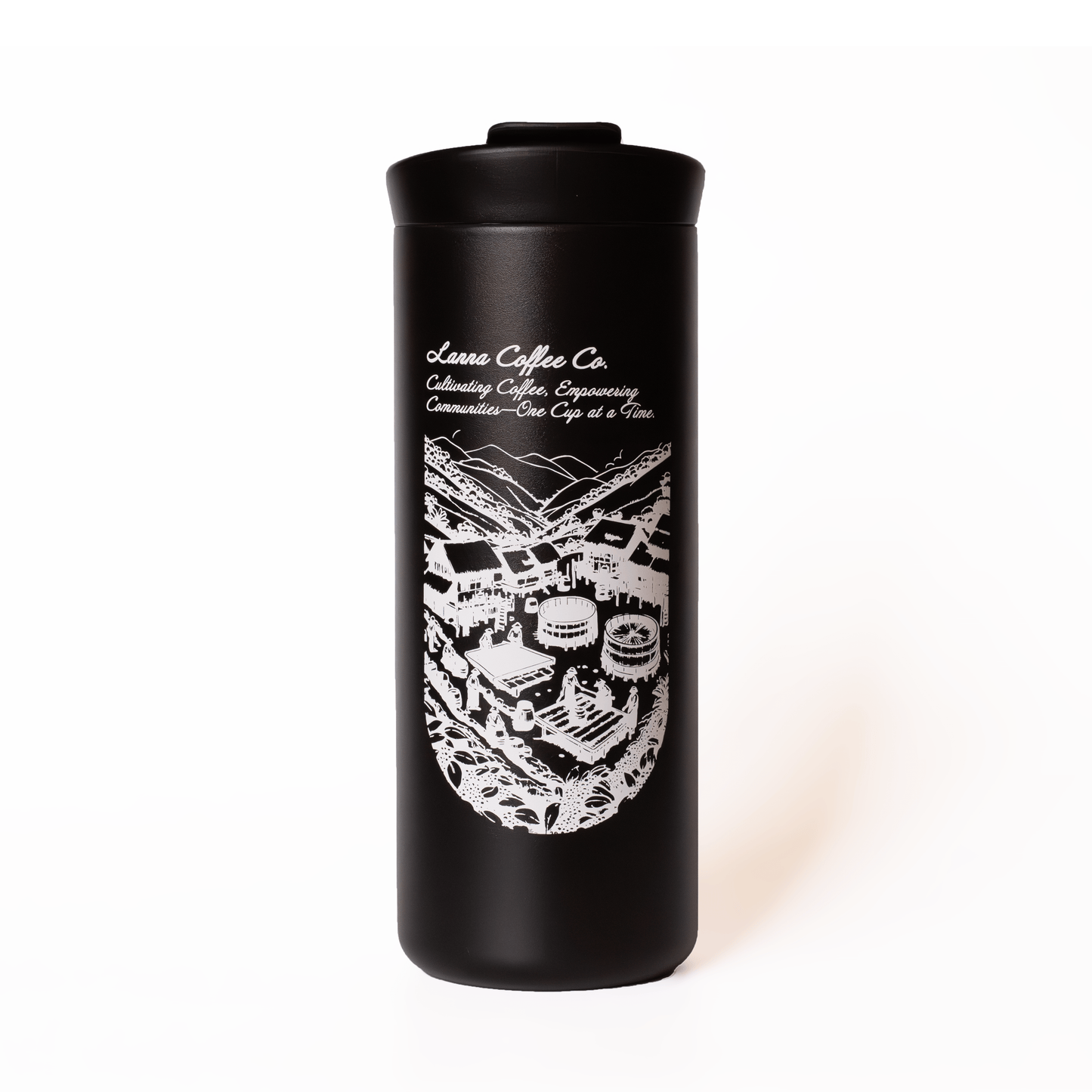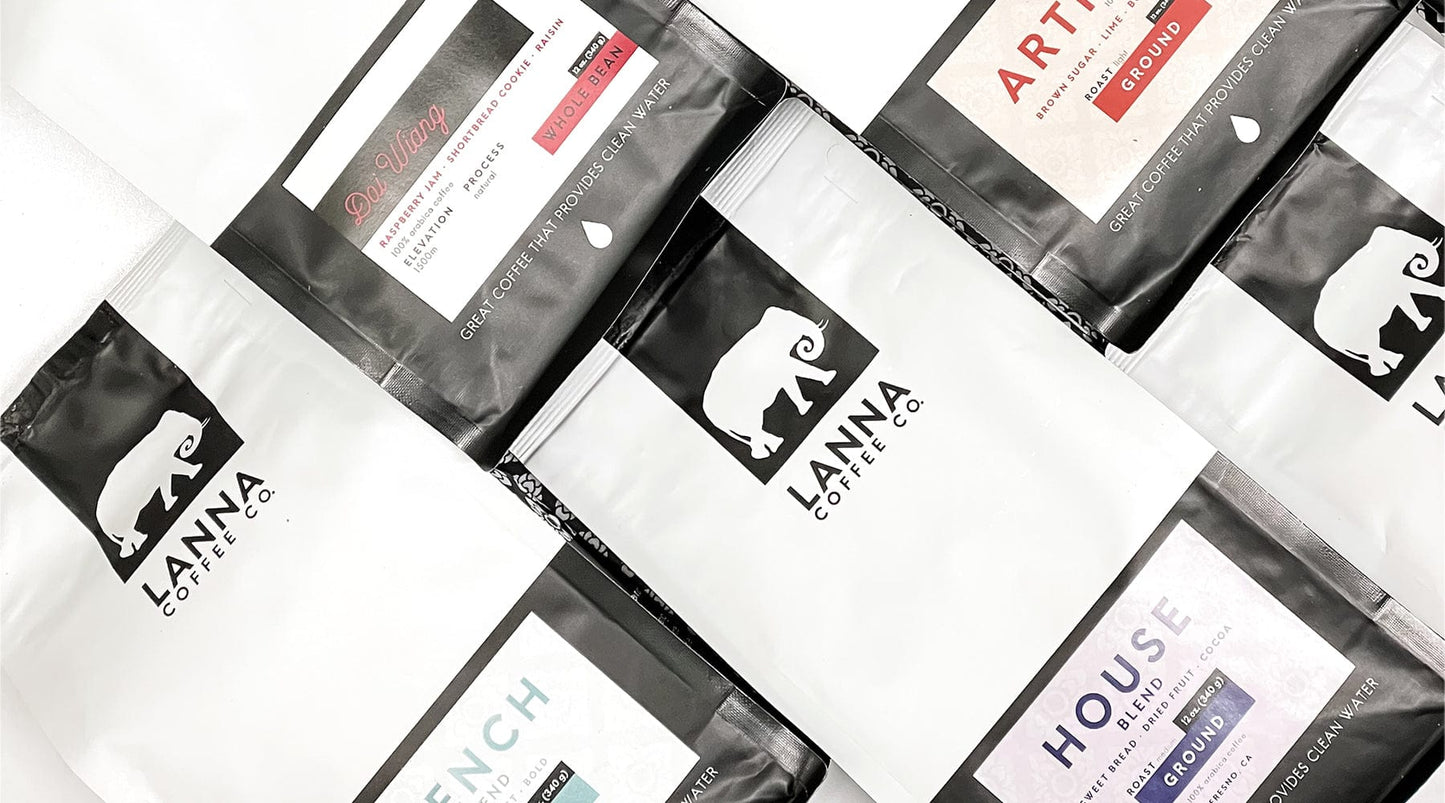
High in the mountains of Northern Thailand, where mist drapes the terraced hillsides and coffee trees flourish under shade, lies the remote village of Law Wu. On our recent origin trip, we had the opportunity to sit down with two of its community leaders — Teerapap and Liki — whose stories offer a powerful reminder that coffee is more than just a beverage; it's a source of resilience, livelihood, and pride.
Their insights shed light on daily life in Law Wu, from how families care for small farms averaging just one hectare, to how seasonal harvests bring neighbors together. Coffee has brought new opportunity to this once-subsistence farming village — creating income, supporting education, and strengthening community bonds. Through this conversation, we gained a deeper appreciation for the people and place behind every cup.

From left to right: Chai, Yobat, Teerapap, Matt, and Liki on a rainy road in Law Wu village.
Meet Teerapap and Liki
Matt: Can you tell me a bit about your farms and families?
Teerapap: I grow coffee with my family on about 20 rai of land. Each rai has around 400 trees, so we care for thousands of trees by hand. My wife and I work together, and we have three children ages 14, 6, and 4. Coffee helps us support their schooling and stay close as a family.
Liki: My family tends to about 25 rai. Like Teerapap, our trees are all shaded and scattered across steep hillsides. I have two kids with another on the way, and when harvest season comes, everyone helps — even the little ones. It’s how we teach them the value of the work.
How has coffee changed life in Law Wu?
Matt: How has coffee changed life in Law Wu?
Teerapap: Before coffee, we mostly grew corn, which is very labor-intensive. We were slaves to corn. But there wasn’t much income. Coffee changed that. It allowed us to stay in the village, take care of our families, and invest in education for our children.
What does the coffee harvest look like?
Matt: What does the coffee harvest look like?
Liki: We pick coffee from November to January, when the cherries are ripe and red. It’s hard work, but it brings everyone together — families, neighbors, even people from nearby villages. It’s a special time for us.
What are some challenges you face?
Matt: What are some challenges you face?
Teerapap: Getting the coffee down the mountain is the hardest part. Our roads are rough and steep. Sometimes, when it rains, we have to carry the bags by hand. It takes a lot of energy, and sometimes we need help from neighbors just to move the harvest out.
And because the trees are growing on steep slopes, we have to be careful while picking. Sometimes we're on our hands and knees, or holding onto branches just to stay balanced. It's not like picking coffee on flat ground – it's slow, careful work, and one misstep can send you sliding down the hill.
What keeps you going?
Matt: What keeps you going?
Liki: Knowing people enjoy our coffee in places we’ve never been. It’s an honor. It makes us proud of what we do.
Bringing Their Story to Your Cup
This visit reminded us why we do what we do. Coffee is more than a product — it's a shared experience rooted in human connection. We’re proud to bring the work of growers like Teerapap and Liki to your cup and share the story behind it.
Want to taste coffee from Law Wu? Try our Black Honey — a unique microlot produced by the families featured in this story.

